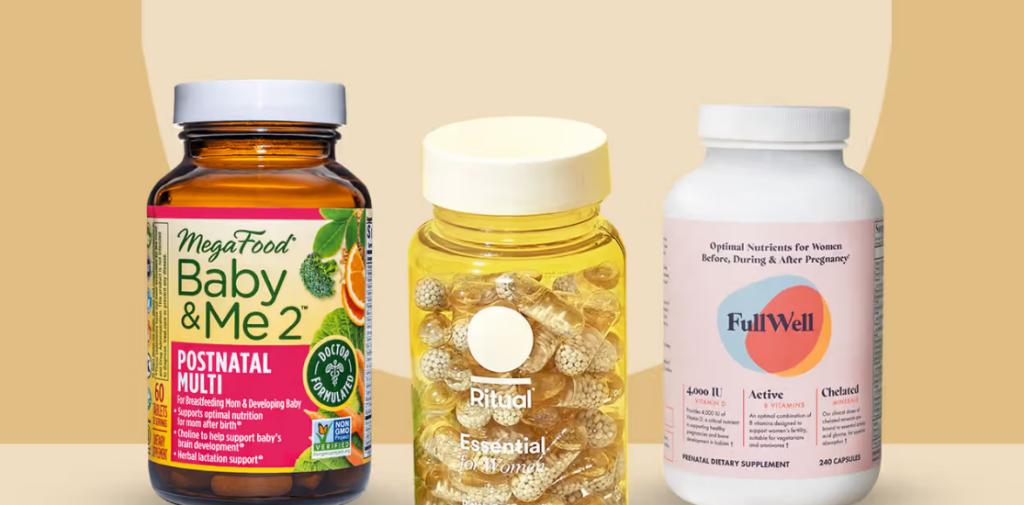Postnatal vitamins play a crucial role in supporting the health of new mothers and their babies during the postpartum period. These supplements are designed to help mothers recover from childbirth, replenish nutrient stores, and provide essential nutrients for breastfeeding.
Choosing the right postnatal vitamin can be overwhelming due to the numerous options available. Here’s a comprehensive guide on what to look for when buying postnatal vitamins to ensure you make the best choice for your health and your baby’s well-being.
1. Key Nutrients to Look For
When selecting the best postnatal vitamins Australia, it’s essential to ensure they contain key nutrients that support postpartum recovery and lactation.
Iron
Iron is crucial for replenishing blood loss during childbirth and supporting energy levels. Look for postnatal vitamins with an adequate amount of iron to help prevent postpartum anemia.
Calcium and Vitamin D
Calcium and vitamin D are vital for bone health. During breastfeeding, a mother’s calcium stores can be depleted, so it’s important to choose a supplement that includes these nutrients to maintain bone strength.
Folic Acid
Cell division and DNA synthesis depend on folic acid. It’s important during the postpartum period to support overall health and aid in recovery.
Omega-3 Fatty Acids (DHA and EPA)
Omega-3 fatty acids, particularly DHA, are crucial for brain and eye development in infants. Ensure your postnatal vitamin includes a source of omega-3s to support your baby’s growth and cognitive development.
Vitamin B12
Vitamin B12 is important for energy production and red blood cell formation. It’s especially crucial for vegetarians and vegans, as it is primarily found in animal products.
Vitamin C and Zinc
Vitamin C and zinc support the immune system and aid in tissue repair, which is particularly beneficial during the recovery phase after childbirth.
Iodine
Iodine is essential for thyroid function and the production of thyroid hormones, which regulate metabolism and support neurological development in infants.
2. Form and Dosage
Postnatal vitamins come in various forms, including tablets, capsules, gummies, and liquid. Think about the form that is most comfortable and handy for you.
Tablets and Capsules
Tablets and capsules are the most common forms of postnatal vitamins. They typically contain a higher concentration of nutrients and are taken once or twice a day.
Gummies
Gummies are a palatable option for those who have difficulty swallowing pills. However, they may contain added sugars and might not include all essential nutrients in sufficient quantities.
Liquid
Liquid vitamins can be easier to consume and may offer faster absorption. They are a good alternative for those who prefer not to take pills or gummies.
Dosage
Check the recommended dosage and ensure it aligns with your needs. Some vitamins require multiple doses throughout the day, while others are designed for once-daily consumption. Choose a dosage regimen that fits into your lifestyle.
3. Quality and Safety
Ensuring the quality and safety of your postnatal vitamins is paramount. Here are some tips to help you choose a reliable product:
Third-Party Testing
Look for postnatal vitamins that have been tested by third-party organizations. Certifications from groups like NSF International, USP (United States Pharmacopeia), or ConsumerLab indicate that the product meets high standards for quality and purity.
Ingredient Transparency
Select brands that are completely transparent about the origins and ingredients they use. Avoid products with artificial colors, flavors, or preservatives.
Non-GMO and Organic Options
Non-GMO and organic vitamins are free from genetically modified organisms and synthetic pesticides, which can be beneficial if you prefer a more natural supplement.
Allergen Information
If you have food allergies or sensitivities, check the label for potential allergens such as gluten, dairy, soy, or nuts. Many brands offer allergen-free options.
4. Brand Reputation and Reviews
Researching the reputation of the brand and reading customer reviews can provide insight into the effectiveness and reliability of the product.
Reputable Brands
Choose postnatal vitamins from reputable brands that specialize in prenatal and postnatal health. Brands with a strong reputation are more likely to offer high-quality products.
Customer Reviews
Reading customer reviews can help you understand how well the product works for other new mothers. Look for feedback on effectiveness, taste, ease of use, and any potential side effects.
Professional Recommendations
Consult your healthcare provider or a registered dietitian for recommendations. They can offer guidance based on your specific health needs and preferences.
5. Additional Considerations
When selecting postnatal vitamins, consider any additional factors that may influence your choice.
Price and Value
Examine prices and what you’re getting for your money. Sometimes, higher-priced products offer better quality or more comprehensive nutrient profiles. However, there are also affordable options that provide excellent value.
Subscription Services
Some companies offer subscription services that deliver vitamins to your door regularly. This can be convenient and ensure you don’t run out of your supplements.
Environmental Impact
If environmental sustainability is important to you, look for brands that use eco-friendly packaging and have sustainable sourcing practices.
Choose the Right Postnatal Vitamins
Choosing the right postnatal vitamins is crucial for supporting your health and your baby’s development during the postpartum period. Look for supplements that contain essential nutrients like iron, calcium, omega-3 fatty acids, and folic acid. Consider the form and dosage that best suits your needs, and ensure the product meets high-quality and safety standards through third-party testing and ingredient transparency.
Research reputable brands, read customer reviews, and consult healthcare professionals for personalized recommendations. By carefully selecting your postnatal vitamins, you can help ensure a healthy and smooth postpartum recovery for both you and your baby.


